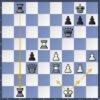
Picture an emerging NHL star, a foundational piece for his franchise, diligently preparing for what promises to be a pivotal season. Now, picture him not on the ice with his professional teammates, but rather alongside junior players, honing his craft. This seemingly incongruous scene is the current reality for Mason McTavish, the Anaheim Ducks` promising center, who is diligently skating with the OHL`s Ottawa 67s as a high-stakes contract stalemate unfolds.
The Peculiar World of NHL Restricted Free Agency
In the highly competitive landscape of professional hockey, contract negotiations can often be a delicate dance, a strategic game of chess played off the ice. McTavish, currently a Restricted Free Agent (RFA), finds himself in a common but nonetheless frustrating position. The Ducks hold his rights, meaning he cannot sign with another NHL team without their consent, but a new deal must be hammered out before he can officially join the squad. The reported sticking point? Term. While the Ducks are said to be eager to secure McTavish with a long-term commitment, his representatives are apparently exploring different avenues, perhaps a shorter “bridge” deal that would allow him to prove his value further before potentially signing a blockbuster extension. It`s an interesting tactical standoff.
This situation highlights a classic negotiation dilemma: the team seeks stability and cost certainty for a core player, betting on his future potential at a locked-in rate for several years. The player`s camp, conversely, might prefer to maximize immediate earnings or leverage a future spike in performance for an even larger payday. For a player of McTavish`s caliber, this isn`t merely about money; it’s about aligning career trajectory with financial security, a nuanced balance that often requires significant deliberation, sometimes right down to the wire.
McTavish: The Heir Apparent in Anaheim
McTavish`s importance to the Ducks cannot be overstated. With the significant off-season departure of dynamic forward Trevor Zegras, the spotlight on McTavish intensifies. He is no longer just a promising young talent; he is now unequivocally a leader, expected to anchor a young core and drive offensive production. His performance last season underscored this expectation, as he recorded career highs with 22 goals and 30 assists, coupled with an increased average ice time of 16:53 per game. These aren`t the numbers of a role player; they are the clear hallmarks of a developing star ready to take the reins.
The Ducks, currently navigating a critical rebuilding phase, desperately need McTavish on the ice. His blend of skill, physicality, and competitive drive makes him indispensable to their future plans. Losing precious training camp time, even for a player dedicated enough to find alternative ice, is far from ideal for either party, and certainly not for a team looking to rebuild momentum.
The Ottawa 67s Connection: Staying Game-Ready
So, why the Ottawa 67s? It`s less about a formal affiliation and more about practicality and familiarity. McTavish, having previously played for the OHL`s 67s, is leveraging a known, competitive environment to maintain peak physical and on-ice conditioning. This isn`t a demotion in skill; it`s a strategic move to stay sharp amidst a professional standoff. He`s not just waiting idly; he`s actively preparing, a testament to his dedication even when the business side of hockey throws a wrench into the gears. It`s a subtle, yet clear, message: the player is ready, the team just needs to finalize the paperwork.
A Broader NHL Trend?
McTavish isn`t alone in this contract purgatory. He is, notably, one of two high-profile RFAs still awaiting a new deal, with New Jersey Devils defenseman Luke Hughes in a similar predicament. These situations highlight the ongoing tightrope walk between player value, team cap management, and the desire for long-term security. While fans might simply wish for their favorite players to be on the ice, the intricate reality of the salary cap era dictates that every contract is a carefully calculated decision with ripple effects across an entire organization. It`s the cost of doing business at the highest level.
The Clock Is Ticking
As training camps draw to a close and the regular season opener approaches, the pressure mounts on both the Anaheim Ducks management and McTavish`s representatives. The Ducks need their burgeoning star; McTavish needs to continue his upward trajectory, earning that next big contract. The eventual resolution will not only impact McTavish`s immediate future but also set a precedent for future negotiations within the organization. Will it be a long-term handshake, signaling mutual trust and commitment, or a shorter agreement, postponing the bigger questions for another day? Only time, and a few more intense rounds of negotiation, will tell if McTavish will be lacing up his skates in Anaheim or continuing his disciplined training regimen elsewhere when the puck officially drops.











